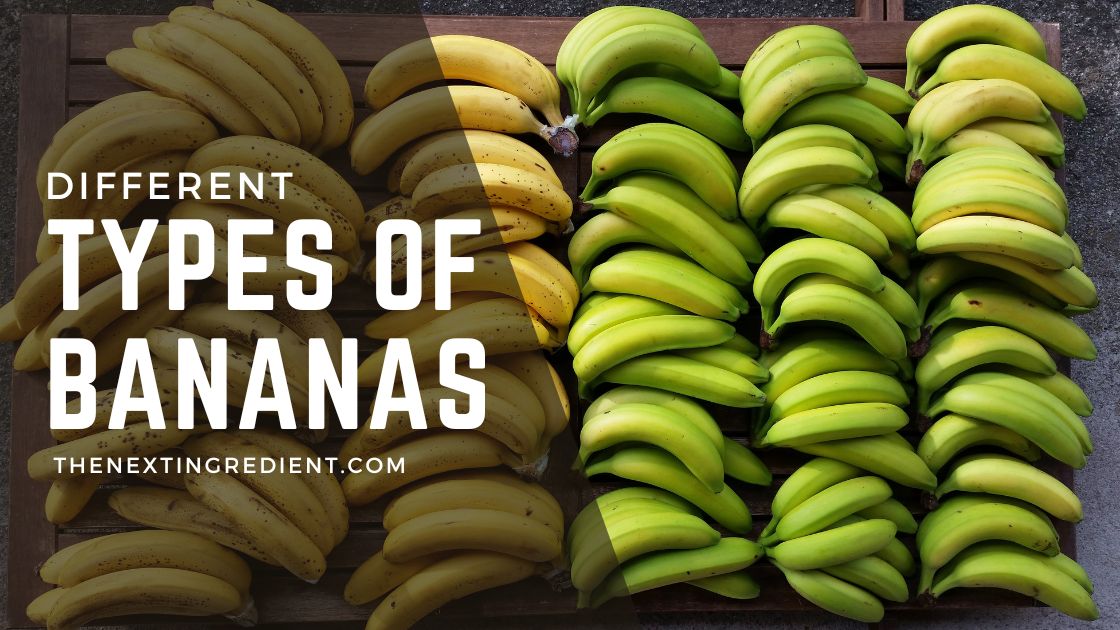Types of bananas, their uses, and how to keep them fresh is our topic today. Bananas are always around at home, are one of those fruits everyone loves, and is certainly top of the list when going to the market, and did you know there are many types of bananas!
That’s right; there are over ten different types; you’ll be surprised to know how little you actually know about a fruit that is so common, including the fact that a banana is actually considered a berry.
Bananas are definitely a win-win, you get or should get that sweet taste and soft texture as soon as you peel it, and at the same time, you also get all the banana goodness. They contain vitamins, minerals, and nutrients that greatly benefit our bodies. In addition, these are perfect in numerous recipes, from baking goods to an energetic and delicious smoothie.
Elevate your banana knowledge to the next level and learn about its different types, plus how to properly store them so you can get the most of your banana needs at home.
Types Of Bananas
Plantains
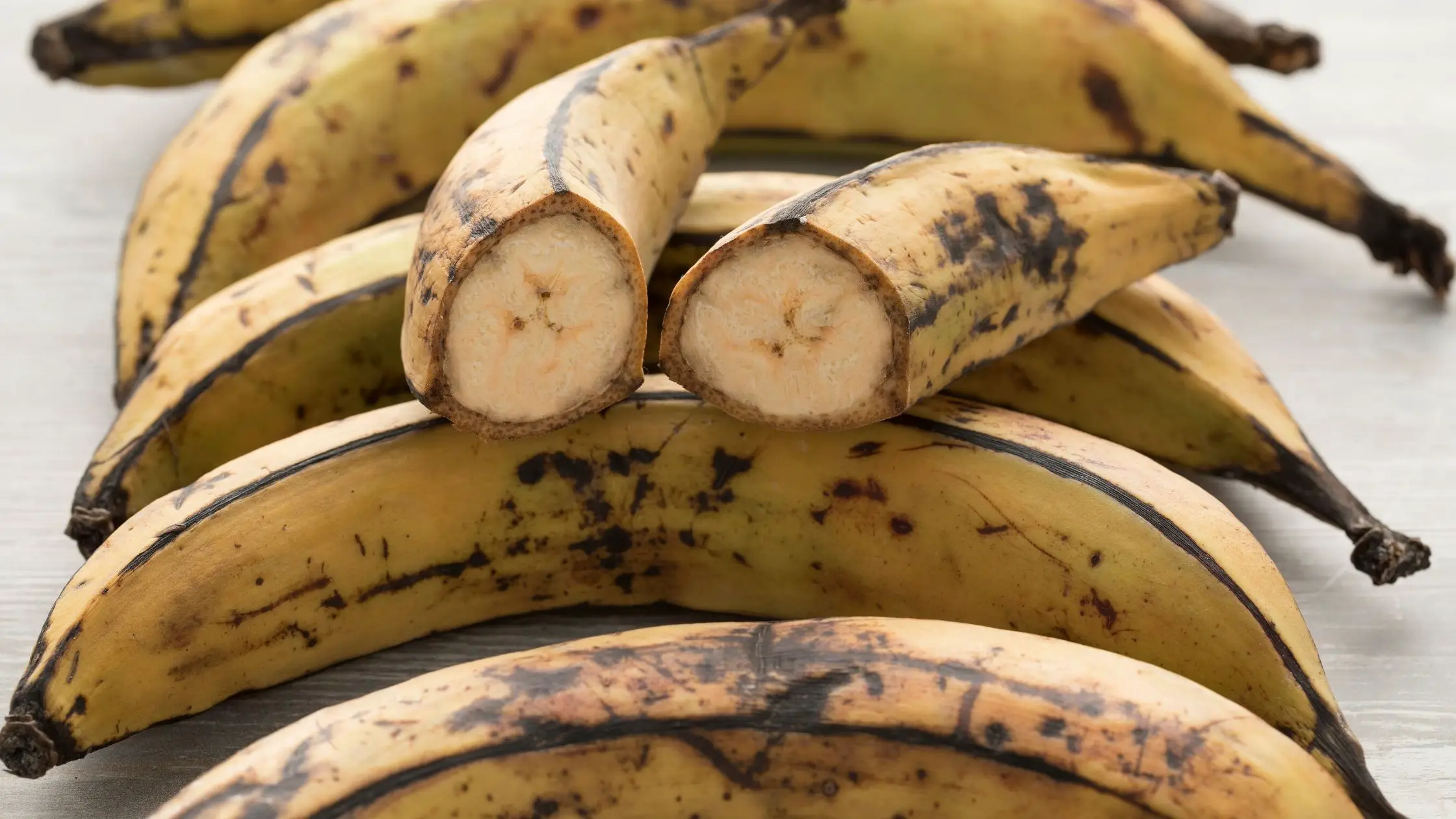
Plantains may look like bananas, although a little bigger; what really sets them apart is that plantains aren’t as sweet. Plantains are often combined in savory meals and are often placed in the veggies section at the market. Also, plantains need to be cooked, unlike bananas which you can enjoy raw.
Fried plantains are a key food item in Central and South America and some Asian and African countries.
Baby Bananas
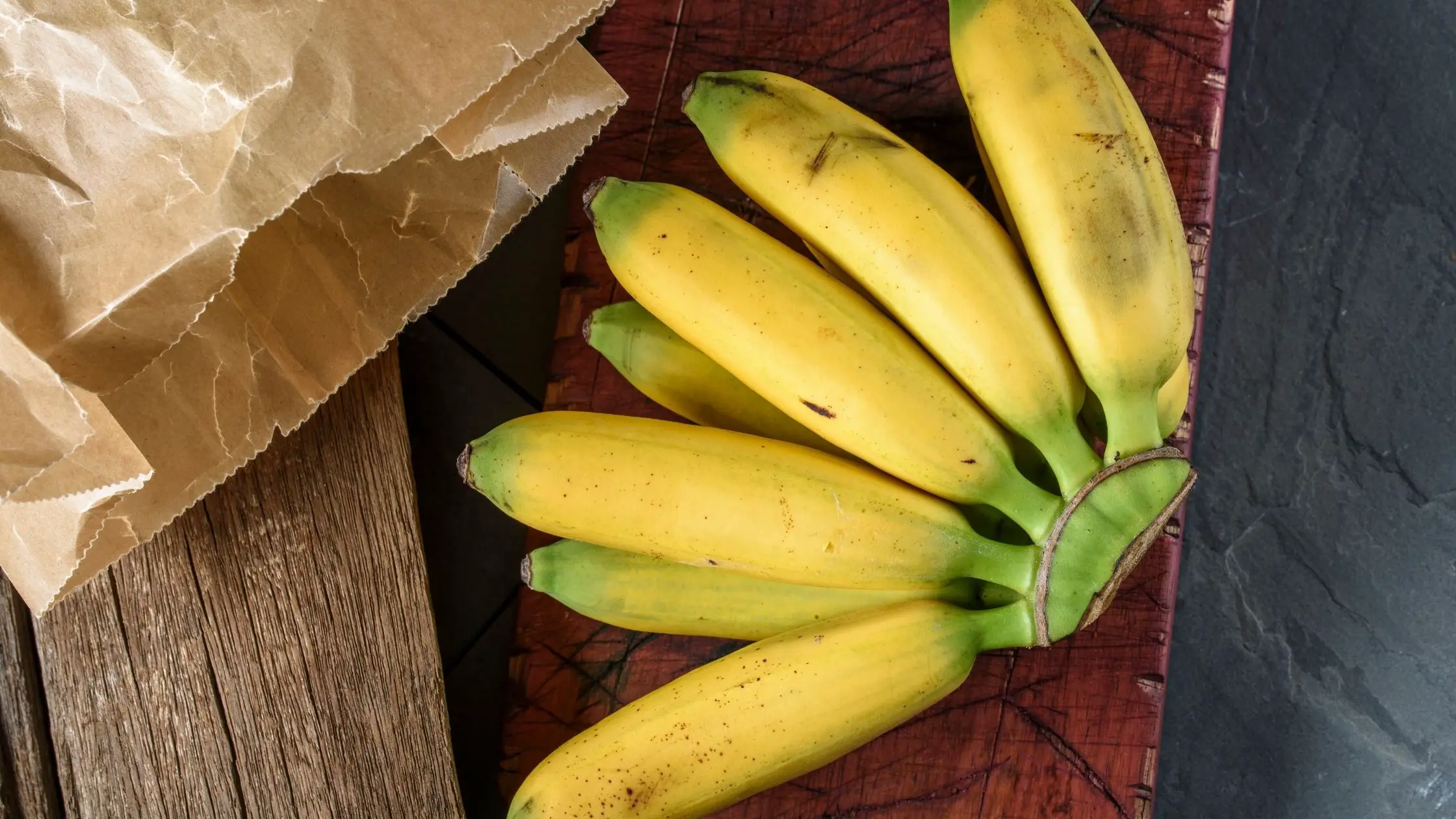
These are also known as lady’s fingers and are usually very sweet and can be consumed raw. Baby bananas grow up to three inches and become bright yellow when fully matured. Baby bananas are great for cakes, tarts, puddings, smoothies, bread, etc. In addition, they carry potassium, fiber, and vitamin B6.
Cavendish Bananas
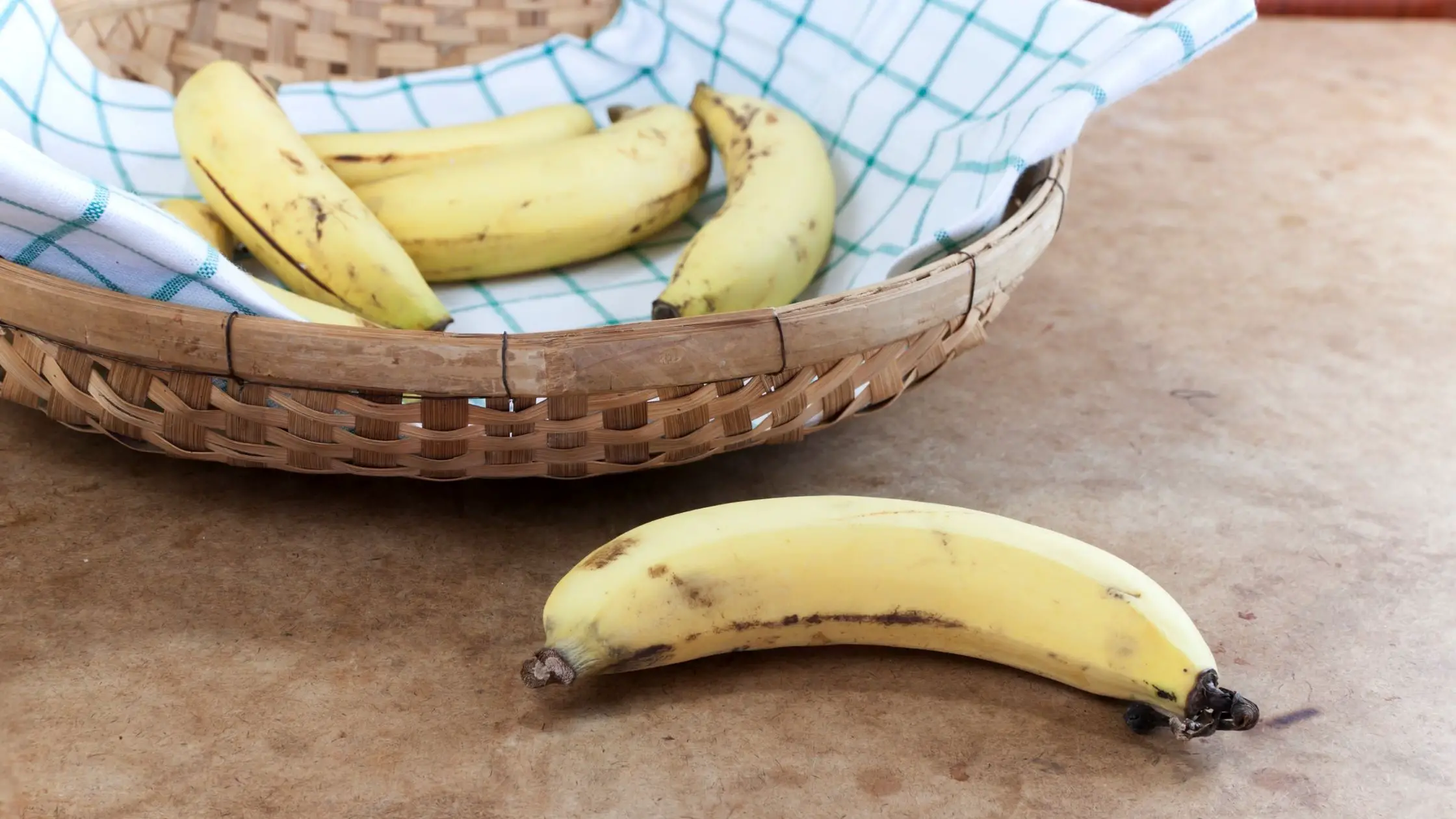
This is probably the most popular type of banana; you usually find it at most markets. These are usually very sweet when fully ripe but are less sweet if under-ripe. You know these are fully matured when they turn green to bright yellow.
They turn completely brown when they become overripe, and the best part is that you can still use them in baked goods. This type of banana offers amazing benefits, including helping to achieve a stronger nervous system.
Dwarf Cavendish Bananas
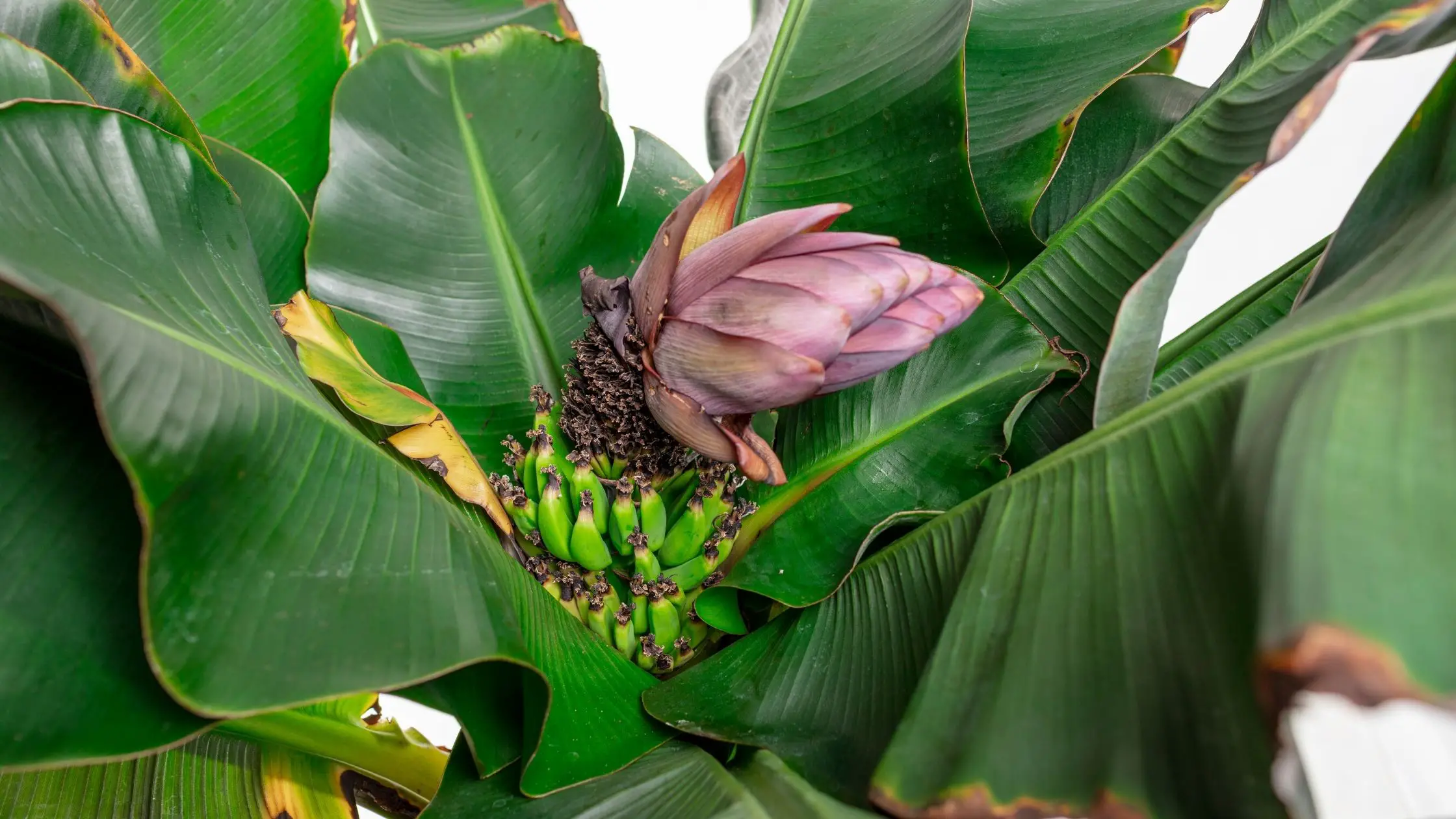
These are a variety of the Cavendish type, only smaller. They go from purple or brown to yellow when mature. Like their bigger relative, these can also be consumed raw.
Giant Cavendish Bananas
Also known as a William banana, Giant Cavendish, as you may imagine, grows to be bigger than the regular Cavendish banana.
These are usually found under-ripen at stores, so you may come across this type and find it still green. Once fully matured, they become yellow and may be consumed raw or used in other recipes like banana bread.
Pisang Raja
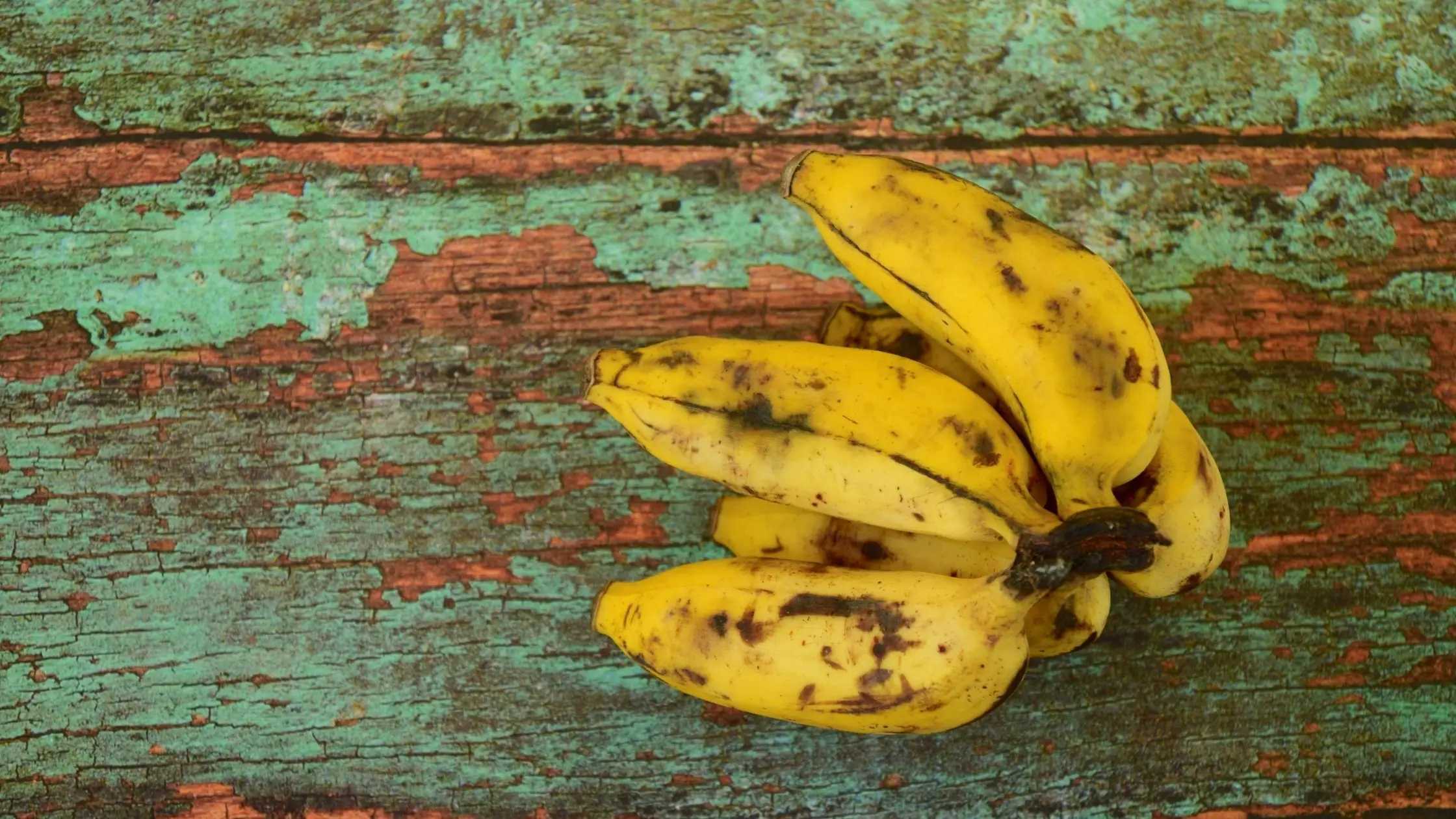
Pisang Raja hails from Indonesia, where you can find them at street markets, usually consumed in cooked dishes like banana fritters. It has a unique texture and honey-like taste and can be found in yellow and orange colors.
Red Bananas
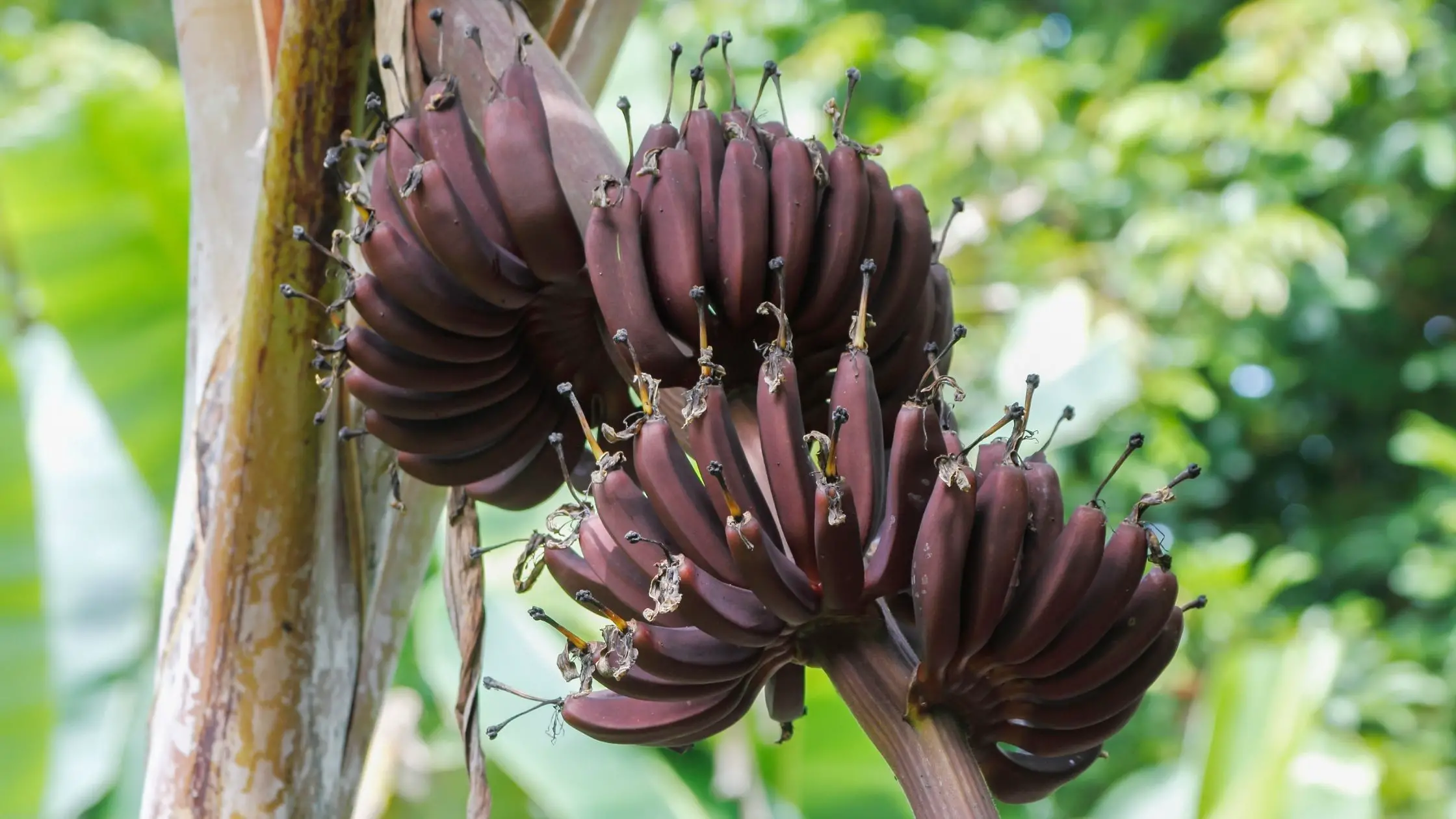
These get their name due to their exterior color; these bananas have dark red skin or red-purple and can also seem pink or orange shades. Red bananas are surprisingly sweet with a hint of a raspberry taste. This can be consumed raw or used in smoothies or other recipes. You’ll find red bananas in Central and South America, Asia, and East Africa.
Compared to the Cavendish, red bananas have thicker skin and are smaller. However, these hold Vitamin C, beta carotene, potassium, and iron.
Manzano Banana
This type is popular in South America, Mexico, and the Caribbean; their flavor is mildly sweet and is suitable for desserts such as pies. Manzanos contain Vitamin C, potassium, amino acids, and fiber.
Blue Java Bananas
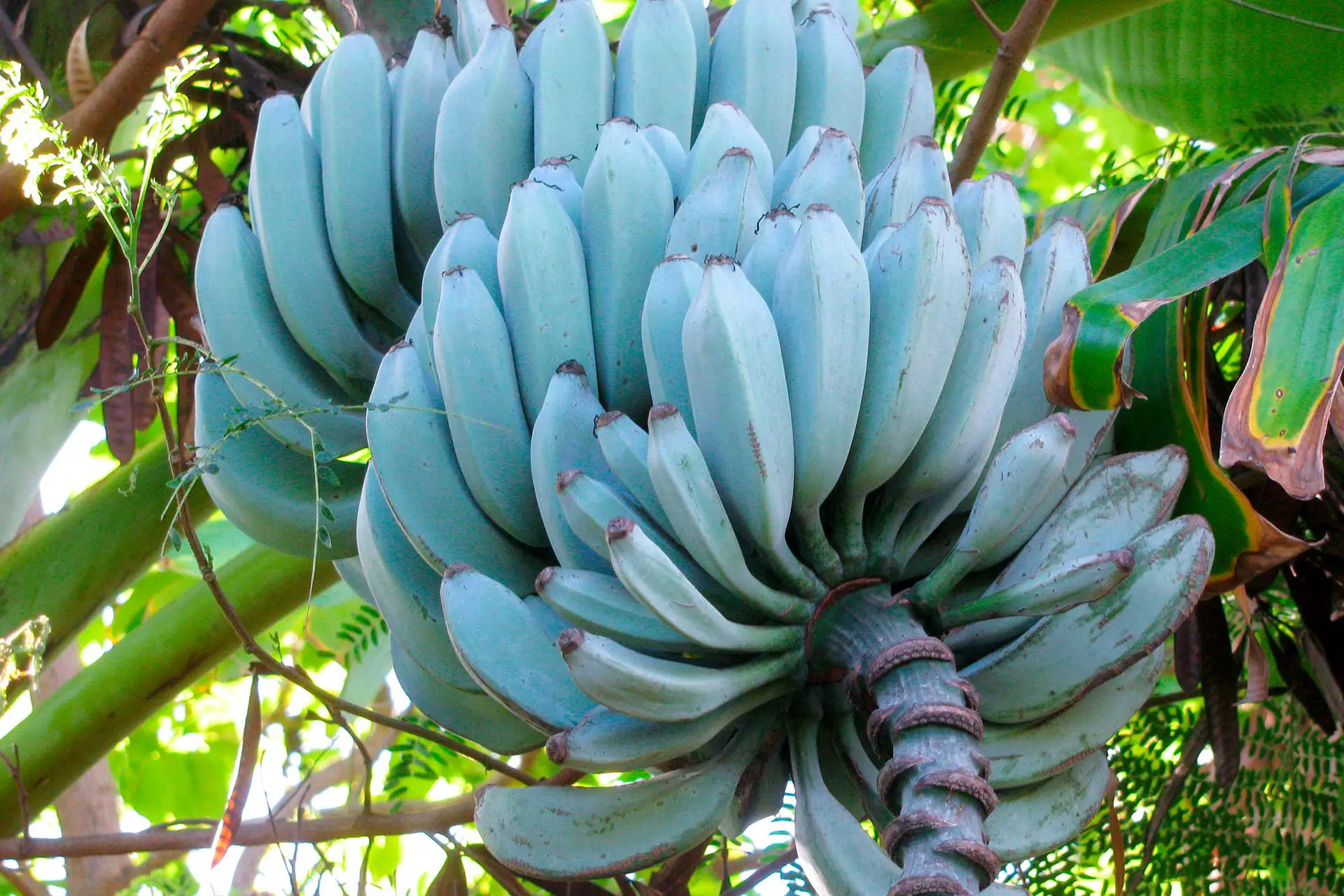
Before they mature, this type of banana presents a bluish shade, hence their name. These are also known as ice cream bananas due to their delightful taste. Though you can enjoy them raw, many prefer to cook them first. It is also known because its plant can tolerate harsh climate conditions.
Burro Bananas
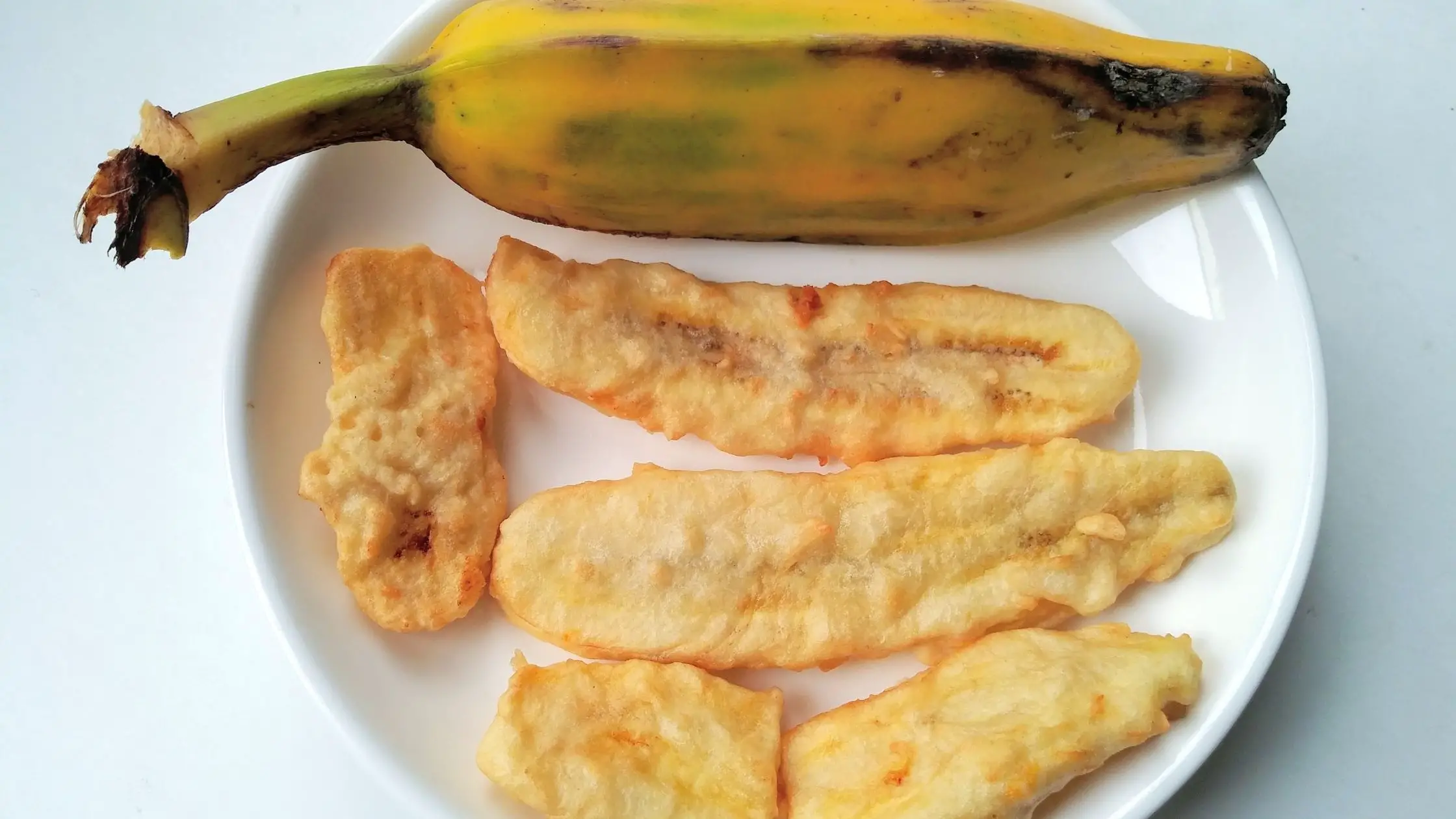
Also called horse banana, Orinoco, and hog banana have a unique flavor and shape; their taste is almost comparable to lemon. They turn out more square than the regular banana shape.
When fully matured, they turn yellow with black spots and are usually found in tropical regions, often combined with cream, meats, berries, and even chiles. These contain Vitamin C, Vitamin B, magnesium, potassium, and fiber.
Barangan Bananas
This type has a distinct look; as they rip, they turn yellow, filled with dark spots, but don’t be fooled by their appearance. When you peel it, you get a sweet texture and softness which resembles the Cavendish type.
These are also suitable for any banana dessert you have in mind, and their benefits include Vitamins C and B.
Goldfinger Bananas
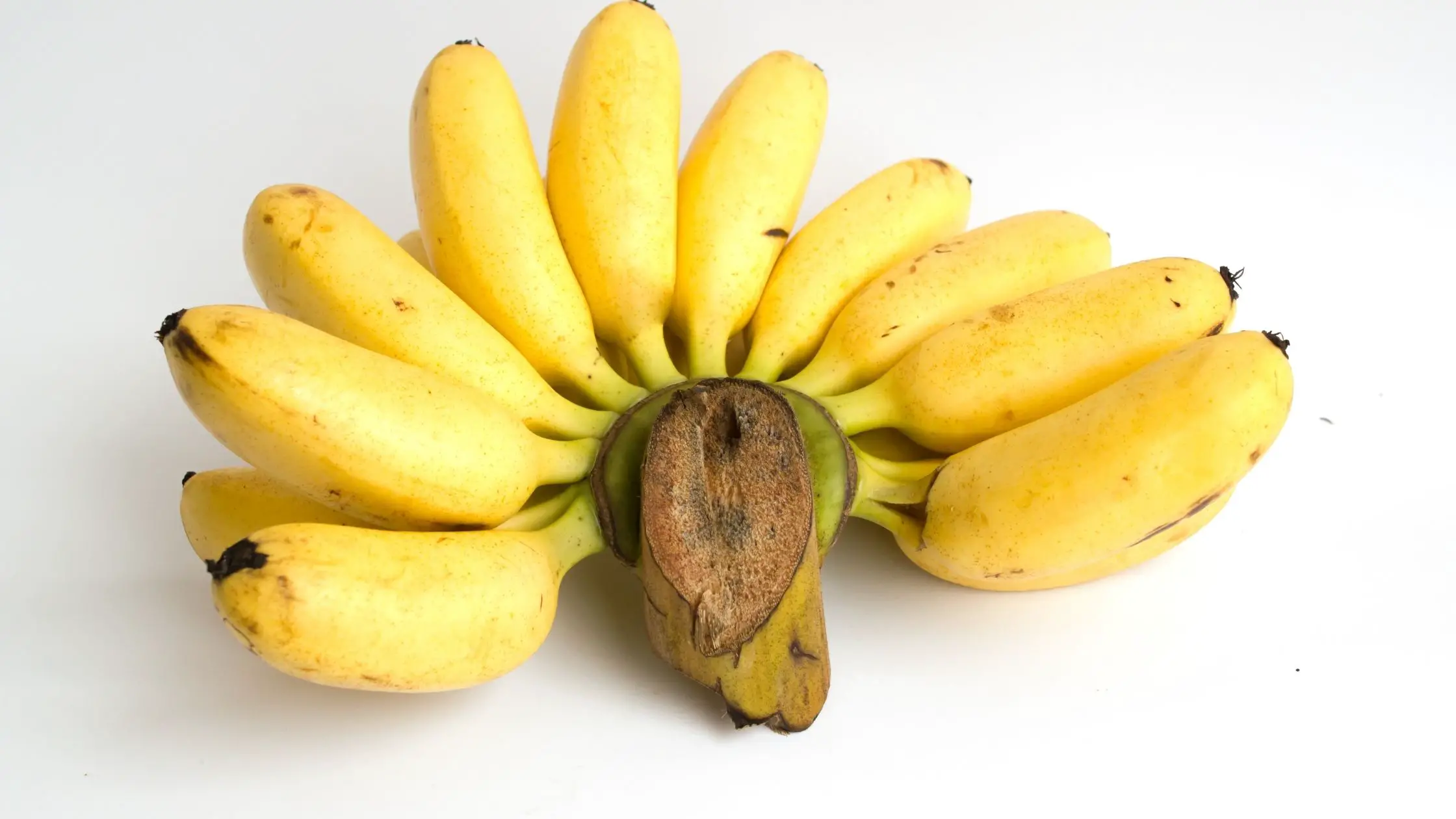
The Goldfinger type was actually created to be able to endure harsh climate conditions. This is the only type that takes longer to ripen and can actually be cooked before they ripen. These make fantastic crunchy chips and are commonly found in Honduras.
Saba Banana
This banana type has almost a cylindrical shape and is characterized by having thick skin, making them ideal for shipping elsewhere before they spoil. Its three is actually liked by many for its appearance. This type of banana is quite popular in the Philippines.
Mysore Banana
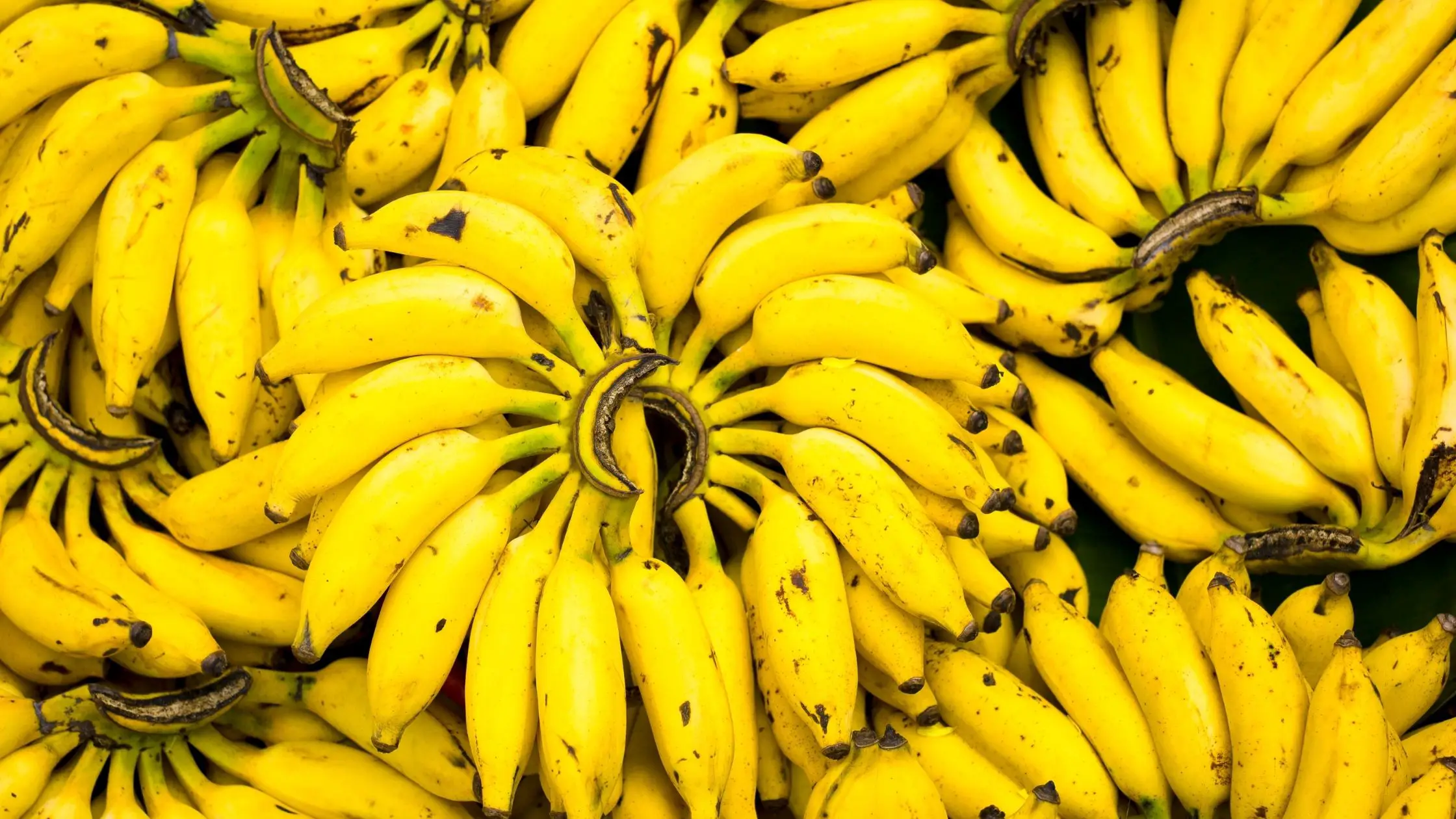
This banana type hails from India and is known for having a bit of a tart taste.
Many don’t think about bananas beyond a great addition to their morning smoothie, but these are pretty adaptable and can be used in numerous savory dishes.
Bananas Nutritional Facts Chart
Bananas are simply fantastic, they can satiate hunger and provide energy instantly, but that’s not all. Bananas have vitamins, minerals, and nutrients that can potentially aid in curing kidney disorders, keep eyes and bones healthy, reduce arthritis inflammation, provide relief from stomach ulcers, aids in digestion, help prevent cardiovascular disorders and even provide relief from menstrual problems.
One banana contains vitamins B2, B6, B9, and C; minerals including Copper, Manganese, Potassium, and Magnesium; and nutrients such as protein and dietary fiber.
It is a given that bananas are great raw and great for desserts, including the world-famous banana bread. In other countries, these are deep-fried and coated with different toppings, from cinnamon to cheese.
Bananas can also be used in savory dishes; an example is Thai Curry, where bananas are blended with cashews, chickpeas, quinoa, etc. Another great use that many don’t realize is in vegan dishes, where it substitutes eggs to make banana pancakes.
How To Keep Bananas Fresh?
Bananas have a likelihood to ripen fairly quick, but it is important to have in mind that ripped bananas belong in your fridge, and it will help them stay that way for a few days; while green bananas should be kept at room temperature if you put them in the fridge they won’t ripen at all.
If you get a bunch of green bananas, wait until they are ready to eat, do not keep them in a closed bag unless you want to hasten the ripening. Just get yourself one of those banana hangers, and you’ll be all set.
Once the bananas are ripe, they should retain freshness for a couple of days in the pantry or a week in the fridge.
How To Store Bananas, So They Stay Fresh For Longer?
There are actually a few ways to keep your bananas fresh for longer. It also depends if you are trying to keep whole bananas or banana slices; either way, it is possible; to follow a few steps.
If you are trying to keep your bananas in a bunch, then:
Wrap the stems in plastic wrap; this is done to prevent ethylene gas from prematurely ripening it. Don’t forget to wrap them again after removing one. This also works if you separate your bananas, then wrap the plastic around the stem individually.
If you are trying to keep banana slices in good shape, then you can try:
- Place your banana slices in a container
- Add 1 teaspoon of lemon or vinegar
- Cover the container
The acid prevents the enzymatic breakdown process, thus keeping your banana from turning brown. Bananas will stay in good shape in the fridge for up to four days.
If you are trying to keep whole bananas fresh, some containers have the shape of a banana and are intended to help your banana from getting brown or mushy.
Can You Freeze Bananas?
You can absolutely freeze your bananas. That said, it is way more recommendable to do it once they ripen. The cold from the freezer will slow down the natural ripening process.
If you are planning to freeze your bananas for your favorite smoothie, follow a few simple steps:
- Peel each banana
- Place them into a Ziploc bag or container
- Label the container with the date
Banana pieces
- Peel each banana
- Cut the bananas into pieces or slices.
- Lay the banana on a baking sheet lined with wax paper
- Flash freeze for a few hours until completely frozen
- Then, transfer the frozen slices to a freezer-safe bag or container, and return them to the freezer
- Label with the date
Bananas can remain frozen indefinitely, but using them within eight months is recommended.
What To Do With Bananas Before They Go Bad?
Ideally, bananas should present firm flesh and bright yellow skin; as they over-ripen, dark spots appear. This is not a sign that the fruit has gone bad.
Instead, you should notice that if the flesh becomes dark, brownish, or squishy, you may want to discard your bananas. But before this happens, there are many ways you can enjoy your bananas, check out different recipe ideas below.

